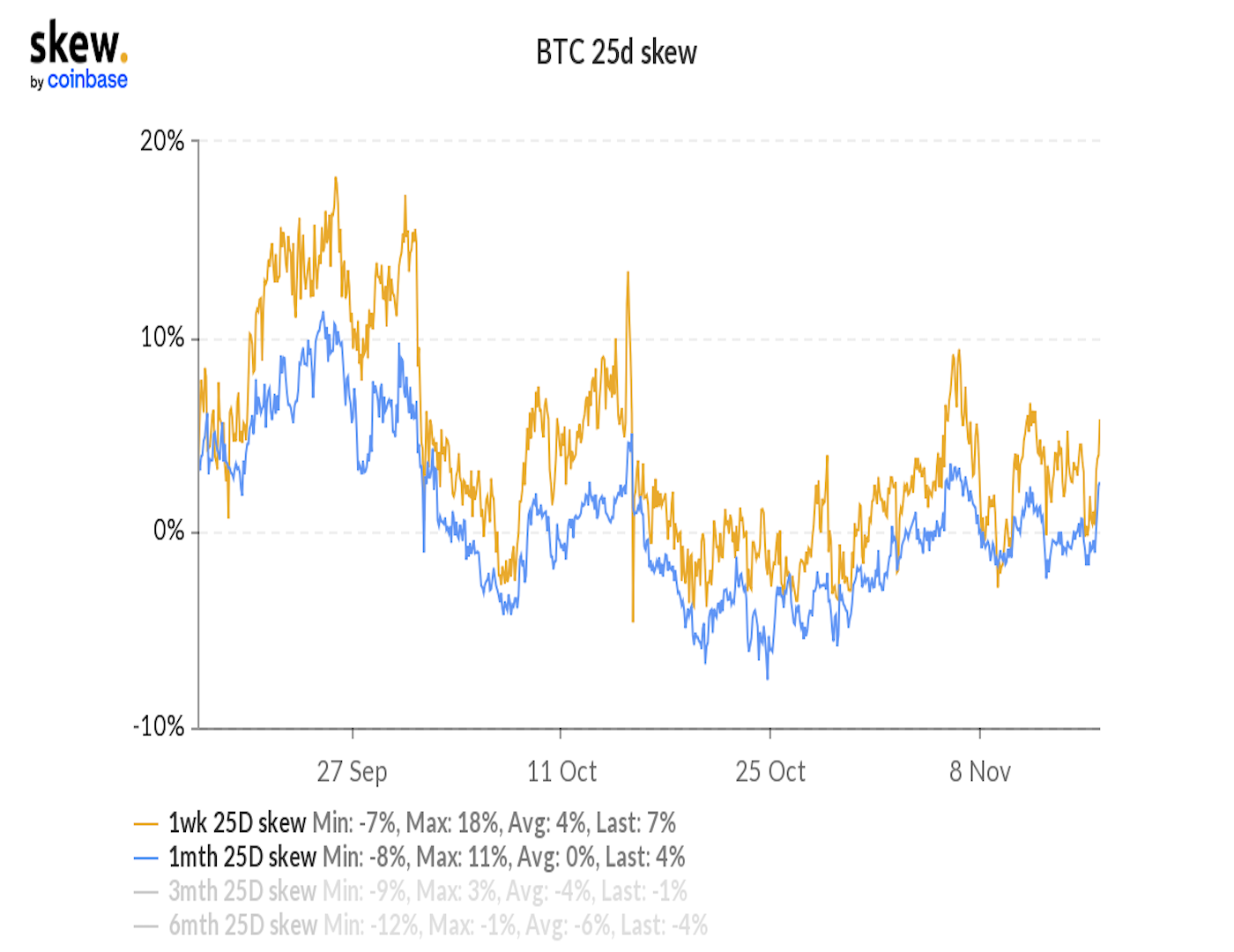Bitcoin, Ether Lose Ground as Twitter CFO Rules Out Crypto Investment, Dollar Index Hits 16-Month High

Ned Segal’s comments likely provided a reason for traders to take some risk off the table in the wake of the rising dollar and U.S. tax reporting requirement.
Bitcoin, ether and other major coins face selling pressure as anti-crypto comments from Twitter’s chief financial officer soured the market mood. The continued strength in the dollar index likely added to bearish forces.
Bitcoin was trading 4.3% lower on the day near $60,800, while ether was nursing a 5.3% loss at $4,320 at press time, according to CoinDesk data. Litecoin, Binance coin, Polkadot’s DOT token and prominent decentralized finance coins flashed bigger losses.
The selling began during early Asia hours after Wall Street Journal quoted social media giant Twitter’s CFO Ned Segal saying that investing cash holdings into crypto assets like bitcoin “doesn’t make sense” right now.
Segal cited price volatility and the lack of accounting rules for these assets as critical factors stopping the company from diversifying into cryptocurrencies.
While there was never any expectation of Twitter announcing crypto investments, Segal’s comments likely provided a reason for traders to take some risk off the table in the wake of the rising dollar and controversial crypto tax reporting requirement introduced by the $1 trillion bipartisan infrastructure bill signed into law by the U.S. President Joe Biden on Monday.
The infrastructure bill requires brokers to provide the Internal Revenue Service with information about traders transacting an amount of over $10,000. The crypto industry is worried that the definition of the word “broker” may be open-ended, bringing miners and node operators under the tax hammer and create tax reporting challenges for investors.
Few companies including Square, Tesla and MicroStrategy have acquired bitcoin as a reserve asset, and widespread corporate adoption remains elusive to date. On Monday, analysts told CoinDesk that bitcoin’s relatively high price volatility is delaying its transition to haven asset from a risk-on or speculative investment.
The dollar index, which tracks the greenback’s value against major fiat currencies, reached a fresh 16-month high of 95.50 early today on lingering fears that Federal Reserve may resort to early interest rate hikes to contain inflation. Interest rate hikes are generally bullish for domestic currencies and weigh over perceived inflation hedges like bitcoin and gold. Like gold, bitcoin is also priced in U.S. dollars. So a rising dollar is considered bearish for the cryptocurrency.
China’s National Development and Reform Commission said on Tuesday that it would consider “punitive electricity prices” for some crypto mines in the next stage of its crypto mining crackdown. China stepped up its crackdown on mining in May and declared bitcoin, ether and tether as illegal in the third quarter.
Analysts said bitcoin could suffer a deeper drawdown in the short term.
“We have noticed some larger sales occur on [cryptocurrency exchange] Bitfinex as well as openings of new short positions,” said Matthew Dibb, COO and co-founder of Stack Funds. While liquidations [forced closure of long positions] so far are quite low by historical standard and funding rates are approaching flat, we could see a further cool-off in BTC for the short term as momentum is beginning to stall.”
Martin Cheung, an options trader from Pulsar Trading Capital, said the downward move represents a healthy correction and could extended further to $60,000 or possibly to $55,000.
“We have been seeing bearish flows in the options market from late last week,” Cheung told CoinDesk in a Telegram chat. “Put-call skews have flipped bearish.”
Put-call skews measure the cost of put options or bearish bets relative to calls or bullish bets. Positive values indicate increased demand for puts or downside protection.

Bitcoin put-call skews (Skew)
The one-month put-call skew has risen to a four-week high of 5% from -2% on Monday, according to data provided by the crypto derivatives research firm Skew. The one-week gauge has increased from 1% to 6%.
A deeper drawdown may be seen later on Tuesday if the U.S. retail sales number beats estimates and Federal Reserve officials start to sound the alarm over inflation, bolstering rate hike fears and adding to the dollar’s strength.
According to FXStreet, retail sales data, scheduled for release at 13:30 UTC (8:30 a.m. ET), are likely to show consumer spending in the world’s largest economy rose 0.7% month-on-month in October.
Atlanta Fed President Raphael Bostic, Richmond Fed President Thomas Barkin, Philadelphia Fed President Patrick Harker, and San Francisco President Mary Daly are scheduled to speak during U.S. hours.
China’s President Xi and U.S. President Biden met on Monday evening at a virtual summit. As markets still await readouts from the meeting, the initial reports appear to be positive.
Also on Tuesday, Reserve Bank of Australia’s Governor Philip Lowe reiterated that the latest data and forecasts do not warrant an increase in the interest rate in 2022.
UPDATE (Nov. 16, 07:50 UTC): Adds information about infrastructure bill in fifth and sixth paragraphs.
BY: Omkar Godbole
DISCLOSURE
The leader in news and information on cryptocurrency, digital assets and the future of money, CoinDesk is a media outlet that strives for the highest journalistic standards and abides by a strict set of editorial policies. CoinDesk is an independent operating subsidiary of Digital Currency Group, which invests in cryptocurrencies and blockchain startups








Responses